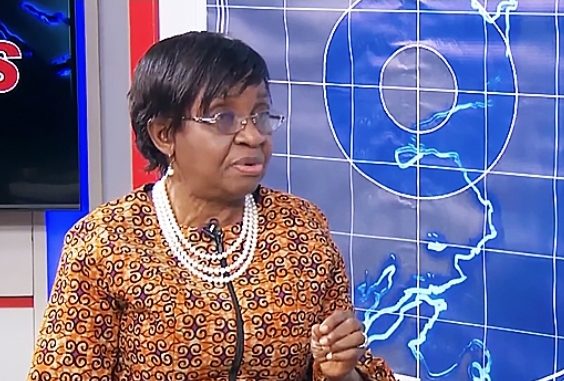
By Marvellous Nyang
August 9, 2024
Prof. Mojisola Adeyeye, the Director-General of the National Agency for Food and Drug Administration and Control (NAFDAC), has disclosed the significant financial challenges she faced upon her appointment in 2017.
She reported inheriting a staggering debt of N3.2 billion, along with an additional N500 million that was unaccounted for in a revealing interview on Channels Television’s programme as a guest on Inside Sources with Laolu Akande.
“I met N3.2 billion debt, and N500 million missing and there was no account for it before I came,” she stated, highlighting the urgency of the situation.
She acknowledged that Nigeria is a blessed nation with “enough endowment” to facilitate improved development.
Prof. Adeyeye, formerly based in the United States underscored the gravity of these financial issues by comparing NAFDAC’s circumstances to those in developed countries.
ALSO READ: Michael Bloomberg announces $600 million gift to historically Black medical schools
“It was tough because if that had happened in the US, NAFDAC would have been declared bankrupt, and a financial house would have taken over the management of our finances. But I didn’t have money to hire a financial house,” she noted, emphasising the critical need for fiscal responsibility and transparency within the agency.
Drawing on her experience in the United States, Adeyeye reflected on the value of financial resources.
“I asked them if they had capital projects they used the money for. Bear in mind that at that time, N1 million was equivalent to $2,000. So multiply $2,000 by N500 million. I was coming from the US where money was hard to get.
‘You worked hard for your money. I could have given up but I saw an opportunity and I seized it,” she explained, illustrating her determination to address the agency’s financial challenges.
To combat the financial crisis, Adeyeye said she implemented strategic reforms aimed at reducing operational costs.
She emphasised the importance of leveraging technology, stating, “I said I was going to cut to the bone. I am going to be using technology to ensure that our system moves on.”
She informed that the introduction of Zoom meetings in 2018 was a key initiative to minimise travel expenses, despite initial resistance from some staff accustomed to travel allowances.
“Many people didn’t like it because they were used to getting travel allowances and DTAs. But we had to save,” she added.
In her concluding remarks, Prof. Adeyeye expressed optimism about Nigeria’s potential for growth and development, asserting, “My point is that we have enough endowment in this country to make things better, and I am using NAFDAC as an example.”
As portrayed during the interview session, Prof. Adeyeye’s leadership reflects a commitment to overcoming financial obstacles while fostering a culture of efficiency and accountability within the agency.



